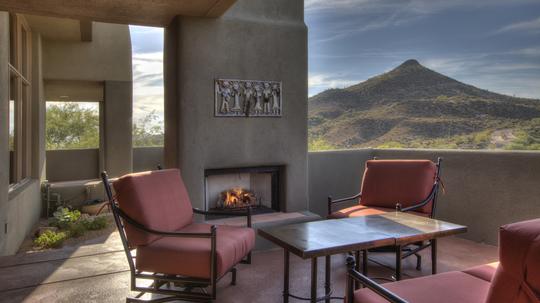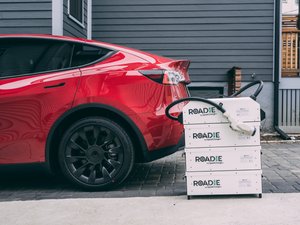
When I think of HomeExchange, I think of Jack Black. Yes, the bumbling comedic actor made famous by movies like School of Rock, Nacho Libre and King Kong.
In the 2006 romantic comedy, The Holiday, Black’s character meets a lovelorn woman from England who swaps homes with an equally distraught Hollywood executive using the HomeExchange website. The two leading ladies stay in each other's houses—one, a La-La-Land mansion and the other, a rural countryside villa—for the Christmas season. There, they find love in typical rom-com fashion.
Today, HomeExchange CEO Emmanuel Arnaud is bringing the idea out of the early aughts and into the modern era.
This month, under Arnaud’s leadership, the business changed its transaction-based model into a subscription-based one. Guests will no longer pay per night when staying in someone else’s abode. Instead, they sign up for a $150 HomeExchange subscription that lets them schedule an unlimited number of exchanges for a year.
The database features over 450,000 homes in 187 countries. HomeExchange is headquartered in Cambridge with additional offices in Paris, France and Zagreb, Croatia. Arnaud acquired the site in 2017 after running GuesttoGuest, a similar home-switching model.
So I sat down with Arnaud to talk about the future of HomeExchange and how the company is challenging the norms of the travel industry.
This interview has been edited for length and clarity.
In your own words, what is HomeExchange?
The basic idea of HomeExchange is that when you’re traveling, your home is going to be empty and you’re going to be sleeping somewhere else. It makes so much sense for that place to be somebody else’s home. That way, you can also have a place that matches your needs. So for instance, my lifestyle for the last ten years has been as a father of toddlers. I can go to a home where there is a crib and toys—where the stairs and the pool are secured in a way that makes me feel safe.
If you don’t want to do the reciprocal exchange, you can also use GuestPoints. These make it possible for me to come to your home and for me to give you some points for that. You can use those points to go somewhere else.
Either way, you can host someone and also be hosted. And then you both can have a great vacation thanks to that.
What does the change to a subscription-based model mean for HomeExchange?
This change that we just made in the business model—of course, a part of it is financial. But a larger part of it is about who we want to be as a company. We realize that when we did the pay-per-night thing, we were making it very easy for people to join. But also that people could join in a way that they weren’t committed to what we are trying to offer. And so they would have an Airbnb type of behavior—just another way to have cheap nights somewhere.
What’s great about subscriptions is that they are amazing to create that community feel instead. These people are there, they are engaged, and they are going to be there for a whole year.
Does the reciprocal nature of HomeExchange change the timeline of booking your vacation?
You have to do it earlier. It’s a more complicated process. There’s no "book now" feature. You have to contact somebody, and there’s going to be a bit of back and forth between the two of you.
Since you are working with people around the world, have you ever had any issues with cultural dissonance?
Cultures are really different from one country to the next. But one thing that seems to me very much the same wherever you go is the importance of hospitality—being a good guest or a good host.
What’s interesting to me is that the help desk tickets take the most of our time are about how people prepared their home and made it nice, and someone comes and gives them three stars out of five on cleanliness. That’s much more brutal when there’s no money involved.
There’s a lot of virtual ways to find a place to stay today. What makes this different?
HomeExchange is a way to have peer-to-peer accommodation that does not disrupt traditional cities. The big threat to cities that rental systems pose is that when you can make so much money by renting your home on a nightly basis, as a landlord, you can be very tempted to stop renting to normal people, to people living in the city. As citizens, we are happy to have a place to live where people are not just coming and going all the time. That’s a really big difference between us and the rest of the economy.
What other improvements do you hope to bring to the company and the industry in the future?
To the industry, I think we want to bring growth. We want to become a prominent voice. Right now, there’s a lot of uniformity that has been created. That no matter what brands are out there in the travel and hospitality business, more and more of them are becoming websites with an inventory and questions about where you want to go, dates, and number of guests. Behind that, there’s the same hotels, rooms, and apartments. We want to be something completely different, and basically, show that there’s another way to travel and be a sharing company.








